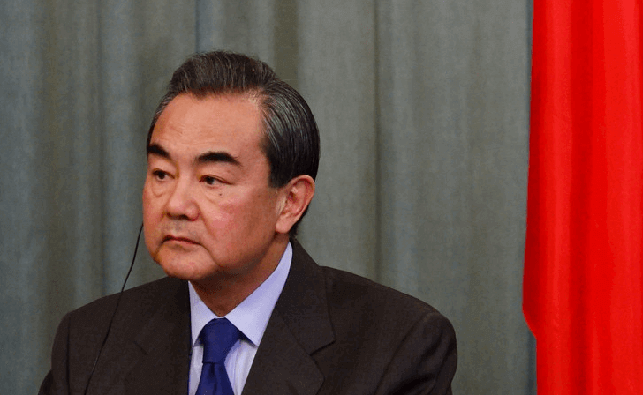Criticising the US-led Quad, China’s Foreign Minister Wang Yi on Tuesday said the Quadrilateral Security Dialogue consisting of the United States, Japan, Australia and India is part of Washington’s effort to build an ‘Indo-Pacific NATO.’
China Again Plays The ‘Ladakh Card’ But Why Is India Still Hesitant To Use Its ‘Trump Card’?

Wang Yi’s scathing assessment of the Quad came on the sidelines of his meeting with Malaysian counterpart Hishammuddin Hussein in Kuala Lumpur. The recently held security dialogue by the Quad countries in Tokyo to counter the growing influence of China in the Indo-Pacific was a trigger for the top Chinese diplomat’s comments.
The Tokyo dialogue of the Foreign Ministers of the United States, Japan, Australia and India sought to strengthen security cooperation to confront China in its growing influence in the Indo-Pacific region.
After initially downplaying the grouping as an overly hyped idea, China is suddenly vexed with the increased cooperation between the Quad countries, all of whom have either border or trade-related conflicts with it.
Indian External Affairs Minister S Jaishankar, who participated in the alliance’s meeting in Tokyo, said it was important for the Quad group to work on advancing security and economic interests of all the countries having legitimate and vital interests in the Indo-Pacific region.
With a veiled reference to China, he said India commits itself to rules-based world order and respect for territorial integrity and sovereignty.
Launched in 2017, the quadrilateral security dialogue of the four nations initially worked to explore security cooperation in the Indo-Pacific region. The Quad started to hold a Minister-level dialogue during last year’s UN General Assembly, and subsequently, high-level meetings, starting with Bangkok.
Recently, Australia joined the Malabar naval exercises involving the United States, Japan and India for the first time, which were held in India.
The Quad has been cooperating with growing seriousness, especially after China started pushing its expansionist agendas across the IOR countries more aggressively. The Quad countries view its dominance as a threat to regional security and, therefore, the ambitions of the grouping have grown beyond trade and economy to include strategic cooperation.
When confronted by a Xinhua reporter on his views about Trump’s Indo-Pacific strategy, Wang said:
“In essence, (the Indo-Pacific strategy) aims to build a so-called Indo-Pacific NATO underpinned by the quadrilateral mechanism involving the United States, Japan, India and Australia.
He said the US strategy pursues to trumpet the Cold War mentality and to stir up a confrontation among different groups and blocs and to stoke geopolitical competition. “What it maintains is the dominance and hegemonic system of the United States,” he said about the strategy employed by the US President in relation to the Indo-Pacific region.
US Secretary of State Mike Pompeo called out China in the recently held Quad meeting as a threat to the region, saying, “As partners in this Quad, it is more critical now than ever that we collaborate to protect our people and partners from the Chinese Communist Party’s exploitation, corruption, and coercion.”
He cited the examples of the South China Sea, in the East China Sea, the Mekong, the Himalayas and the Taiwan Straits of China’s growing expansionist policies. The other three countries, including India, did not directly mention China.
While the Quad represents a formidable military alliance to take on giant China and has acknowledged its rivalry with the communist nation, it will be an exaggeration to call the grouping as being equivalent to NATO, which has an actual joint military force and its own military assets.
On the home front, China is also irking its smaller island neighbours – Philippines, Malaysia, Vietnam, Taiwan, among others – with its hegemonic advances in the South China Sea. The region is of high strategic importance with a number of international trade routes passing through it.
The Chinese Foreign Minister was on a five-nation Southeast Asian tour this week, a move aimed to mend differences with its small island neighbours. He emphasized the importance of China working together along with the 10-nation ASEAN to remove ‘external disruptions’ in the sea and move forward with talks to enact a code of conduct governing the waters.
According to experts, both India and Japan and tempted to join the ‘Asian-NATO’ alliance, however, both nations cannot afford to spoil their economic ties with the world’s second-biggest economy, even though they would like to continue their military alliance with the US.